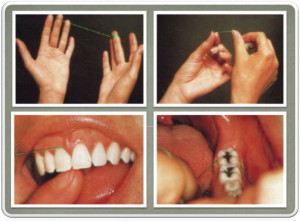CLINIC NOW OPEN FROM 10 AM TO 9 PM
General Dentistry :
Regular check ups and cleaning of teeth are essential in keeping your smile healthy and
glowing!
We offer comprehensive general dentistry for all of our patients, including hygiene services.
We are accepting new general and cosmetic patients and welcome appointment bookings via telephone, email or online. Click on the online link to make an appointment.
"Our team of Dental Professionals are here to ensure your comfort and health!
Hygiene:
Professional cleanings performed by a dental surgeon help in the prevention of gum disease and tooth decay. In a professional cleaning, your dentist will remove plaque from the teeth that causes tooth decay and gum disease, remove hardened plaque or calculus (tartar) and remove stains from your teeth followed by polishing giving you a cleaner brighter smile.
Your dentist is an integral part of your health care team who will help you ensure that your smile receives the regular attention it deserves.
Gum Disease (Periodontal Disease):
The story of untreated periodontal disease is one of tooth loss and bad breath. Periodontal, or gum disease is caused by bacteria normally found in the mouth. These bacteria's main goal is of burrowing under the gum to find their favourite meal - your bone! As the bacteria eat away the bone that supports the teeth in your jaw, these teeth can loosen and even eventually fall out completely.
As with most conditions in the mouth, periodontal disease rarely causes any pain until it is in the most advanced and serious stages, at which time the condition may be too late to reverse. When left untreated, gum disease can lead to numerous health issues, and often leaves a permanent and unpleasant mark on your smile. Gum disease can frequently be controlled by daily flossing and brushing and maintaining regularly scheduled appointments with a dental hygienist.
Your dentist can step in and assess any problem areas or concerns you might have - and suggest a plan to combat gum disease before it is too late. Ask your doctor, or any of our staff about Periodontal consults or if you have questions or concerns about the health of your gums.
Mouth Guards:
We offer protective guards for our patients for bruxism(night grinding), athletic use, realignment, snoring and sleep apnea.
Oral Health Care at Home
Consistent and meticulous home care is the single most important thing you can do to maintain a healthy, beautiful smile and prevent expensive dental treatment in the future. The goal of home care is to regularly remove the sticky film of bacteria called plaque from your teeth. This bacteria causes gum disease and tooth decay and builds up daily.
Here are some helpful tips and reminders to ensure you're doing your part in maintaining good oral health
Brushing:
Brush your teeth at least twice daily using a soft toothbrush. You can use any softbristled, CDA approved toothbrush. In most cases, our doctors highly recommend the use of modern electric toothbrushes such as Oral B electric brushes.
Tongue Cleaning:
The tongue, because of its highly textured surface, harbors a great deal of plaque and bacteria. We recommend the use of specially designed tongue cleaners to cleanse the tongue daily. These are much more effective than brushing the tongue with a toothbrush.
Flossing:
We encourage you to floss daily to remove plaque between teeth that you can't reach with regular brushing. Proper flossing technique requires 12" to 18" of dental floss. Begin by wrapping the floss around the middle finger of each hand, pulling the floss tightly, then use your thumb and forefingers to slide the floss gently between each set of teeth.
Curve the floss in a "C" shape around each tooth and move the floss up and down along the tooth, going as low as you can comfortably under the gum line. Use a fresh section of floss for each tooth until you have flossed the entire mouth. Although tedious, flossing is one of the key factors in maintaining strong and healthy gums, and eliminating excessive bleeding at your regular appointments.

Rinsing:
A quick addition to your daily routine, or in place of brushing at the workplace, rinsing can help you keep a healthy smile! When the situation prevents you from regular brushing or flossing, rinsing can aid in maintaining your overall oral health and the health of your gums.
Digital X-rays:
Digital radiography (digital X-ray) is the latest technology used to take dental x-rays.
This technique uses an electronic sensor (instead of X- ray film) that captures and stores the digital image on a computer. This image can be instantly viewed and enlarged, helping the dentist and dental hygienist to detect problems more easily. Digital X-rays reduce radiation by 80–90% compared to the already low exposure of traditional dental X-rays.
Dental x -rays are essential diagnostic tools that provide information not visible during a dental examination. Dentists use this information to safely and accurately detect hidden problems and complete an accurate treatment plan. Without X-rays, problem areas may go undetected.
What an X-ray can reveal:
⇒Abscesses or cysts
⇒Bone loss
⇒Cancerous and non-cancerous tumours
⇒Decay between the teeth
⇒Developmental abnormalities
⇒Poor tooth and root positions
⇒Problems inside a tooth or below the gum line.
⇒Detecting and treating dental problems at an early stage may save your time, money, unnecessary discomfort and your teeth!
How often should dental X-rays be taken?
The need for dental X-rays depends on each patient’s individual dental health needs. Your dentist will recommend necessary X-rays based upon the review of your medical and dental history, a dental exam, signs and symptoms, your age and risk of disease.
A full mouth series of dental X-rays is recommended for new patients. A full series is usually good for a few years.
For extractions, particularly wisdom teeth, an OPG (orthopentogram) is needed to examine the entire jaw. When considering orthodontics, an OPG and a CEP (encephalogram) are also needed.
Root Canal Therapy:
Root canal therapy involves the saving of a tooth that is decayed and otherwise would die and have to be removed. In order to save the tooth, the pulp (the living tissue inside the tooth), nerves, bacteria and any decay are removed, and the resulting space is filled with special, medicated, dental cement, which restores the tooth function.
Why is it Required?
Root canal therapy is needed when the nerve of a tooth is affected by decay or infection. Many patients believe that removing a tooth that has problems is the solution, but what is not realised is that extracting (pulling) a tooth will ultimately be more costly and cause significant problems for adjacent teeth. The treatment is generally not painful or traumatic.
Root canal treatment if followed by placement of a crown is highly successful and usually lasts a lifetime, although on occasion a tooth will have to be retreated due to new infections.
Signs and symptoms for possible root canal therapy:
⇒An abscess (or pimple) on the gums.
⇒Sensitivity to hot and cold.
⇒Severe toothache pain specially at night
⇒Sometimes no symptoms are present.
⇒Swelling and/or tenderness.
⇒A sense that the tooth has grown or is suddenly in a heavy contact with the opposing tooth.
⇒The tooth feels slightly loose and may have a bad taste coming from it.
Reasons for root canal therapy:
⇒Decay has reached the tooth pulp (the living tissue inside the tooth).
⇒Infection or abscess have developed inside the tooth or at the root tip.
⇒Injury or trauma to the tooth such as a crack in the tooth.
What does root canal therapy involve?
A root canal procedure requires one or more appointments and can be performed by a dentist or endodontist (a root canal specialist).
While the tooth is numb, an access opening is made on top of the tooth and a series of root canal files are placed into the opening, one at a time, removing the pulp, nerve tissue and bacteria. If tooth decay is present, it will also be removed with special dental instruments. The pulp chamber is cleaned and disinfected and allowed to heal.
Once the tooth is thoroughly cleaned, it will be sealed with either a permanent filling or, if additional appointments are needed, a temporary filling will be placed.
At the next appointment, usually a week later, the roots and the inside cavity of the tooth will be filled and sealed with special dental materials. A filling will be placed to cover the opening on top of the tooth. In addition, all teeth that have root canal treatment should havea crown (cap) placed. This will protect the tooth, prevent it from breaking and restore it to its full function.
After the initial root canal appointment there may be some discomfort for one or two days but this will quickly improve.
You will be given care instructions after each appointment. Good oral hygiene practices and regular dental visits will aid in the life of your root canal treatment.

